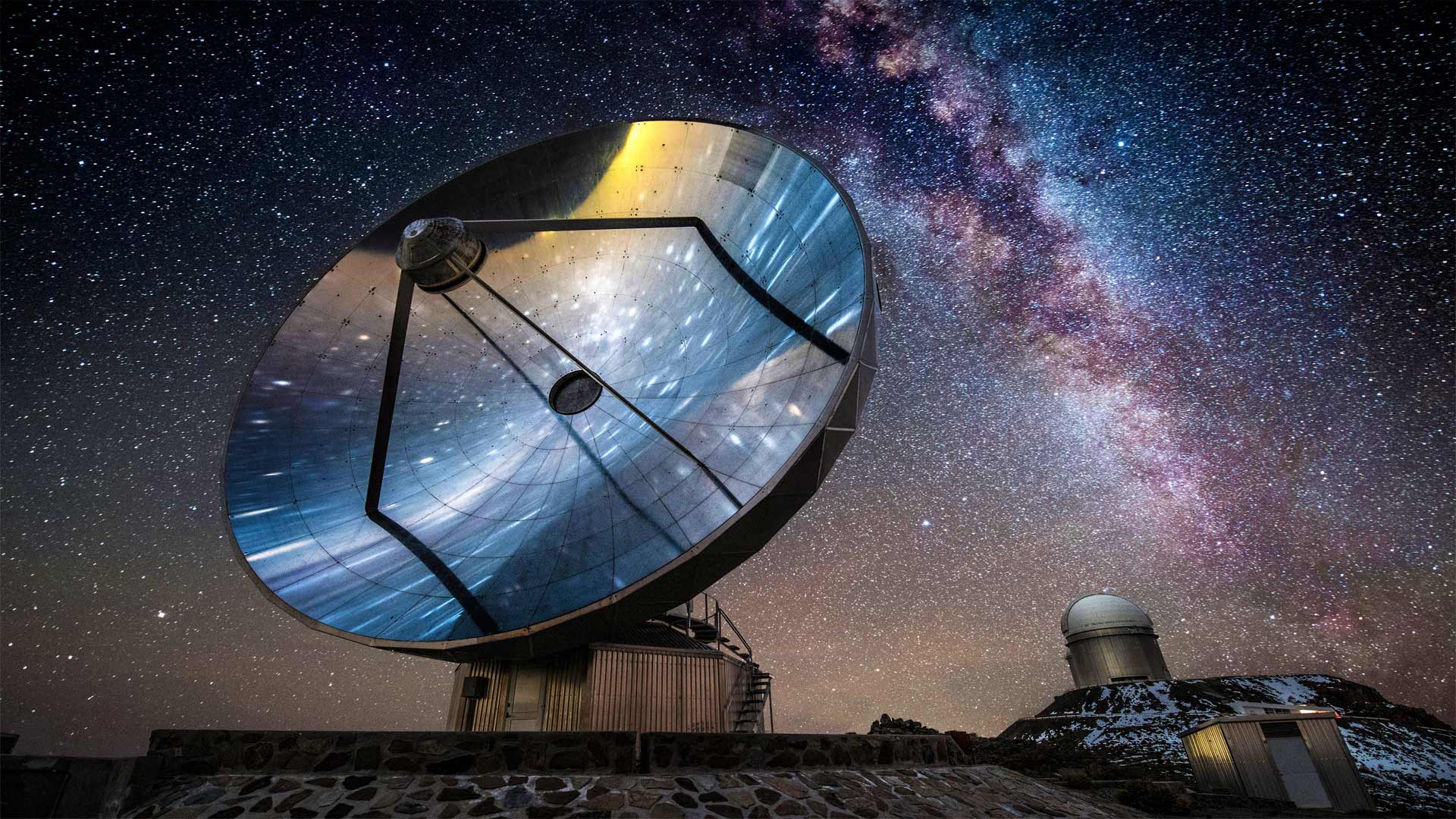标签 天文日 下的文章
拉西拉ESO天文台上的天文望远镜设备,智利 Swedish antenna at La Silla ESO Observatory, Chile (© Alberto Ghizzi Panizza/Getty Images)

拉西拉ESO天文台上的天文望远镜设备,智利 Swedish antenna at La Silla ESO Observatory, Chile (© Alberto Ghizzi Panizza/Getty Images)
仰望夜空 Eyes on the skies
Astronomy Day
In one of the darkest places on Earth there's a cluster of telescopes that examine the heavens each night, sending detailed information about the celestial bodies they observe to astronomers across the planet. Far from any population centers or light pollution, the Atacama Desert is the world's driest nonpolar desert. It's the perfect place for La Silla Observatory, one of the largest observatories in the Southern Hemisphere, and the first to be used by the European Southern Observatory (ESO), a research organization made up of astronomers from 16 European nations. The first ESO telescope at the La Silla site in Chile began operating in 1966.
And what better place to spend World Astronomy Day? Started in 1973 by Doug Berger, the president of the Astronomical Association of Northern California, Berger's initial intent was to set up various telescopes in busy urban locations so that passersby could enjoy views of the heavens. Since then, the event has expanded and is now sponsored by several organizations associated with astronomy. The springtime Astronomy Day is mirrored by another in the fall between mid-September and mid-October.
天文日
在地球上最黑暗的地方之一,每天晚上都有一组望远镜检查天空,向地球各地的天文学家发送有关他们观察到的天体的详细信息。阿塔卡马沙漠远离任何人口中心或光污染,是世界上最干燥的非极性沙漠。这是南半球最大的天文台之一拉西拉天文台的完美地点,也是欧洲南方天文台(ESO)首次使用的天文台,该研究机构由来自16个欧洲国家的天文学家组成。智利拉希拉基地的第一台ESO望远镜于1966年开始运行。
还有什么地方能更好地度过世界天文日呢?1973年,北加州天文协会主席道格·伯杰(Doug Berger)创立了该望远镜,伯杰最初的意图是在繁忙的城市地点安装各种望远镜,以便路人可以欣赏天空。从那时起,这项活动已经扩大,现在由几个与天文学有关的组织赞助。9月中旬至10月中旬之间的秋季,春季天文学日与另一个天文学日相映成趣。